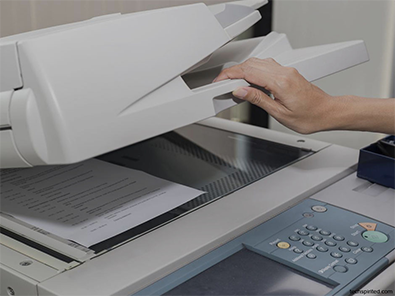It is essential to know if your company will have to handle sensitive information. This blog post provides you with a checklist of what you should do before hiring employees, such as:
- Determine the scope of your company’s responsibilities for managing sensitive information.
- Research how much experience they need to be qualified.
- Find out if there are any specific certifications that they would need to avoid legal ramifications if something goes wrong.
If you are in Houston and you are looking for a Copier for your business, you may contact Clear Choice Technical Services in Houston. You can ask about Copier Leasing Services in Houston, Copier rental services in Houston.
Who should handle the company’s sensitive information?
The company will most likely need to handle sensitive information, and the company needs to know how much experience they would need to be qualified. If there are any specific certifications that your employees should have, then you might want to check with a lawyer before hiring them. The company can find out the scope of their responsibilities when dealing with this type of information and research their requirements by checking state laws or regulations on managing sensitive information or talking with an attorney specialising in business law.
Knowing these things now will help your company avoid legal ramifications down the road if something goes wrong because someone was not adequately trained or experienced enough!
When choosing new hires:
- The company should know the scope of their responsibilities
- Check state laws or regulations on managing sensitive information
- Talk to an attorney who specialises in business law.
Your company needs to make sure that they hire new employees with some experience dealing with sensitive information. This will be especially true if you’re the type of company that regularly deals with this kind of data, like a healthcare company. You’ll want people on staff who have dealt with issues related to confidentiality and security before so they can inform other staff members about what it’s like when handling such things. These types of professionals typically already have higher levels o training than those without knowledge about privacy protection.”
There may be specific laws that your company will need to comply with to deal with sensitive information. For example, if you’re a healthcare company and are working on the design of new medical devices, there may be specific rules about how this data should be handled so as not to put patients at risk.”
What can my company do?
“The first step is talking to an attorney who specialises in business law or other professionals who specialise in privacy protection for more information. As stated before, hiring employees well versed in the handling of such things would help greatly. Still, it’s also important that they have proper training from the get-go and follow any guidelines set forth by their employer when dealing with personal health records or anything else deemed safe enough for them to handle.”
Where should my company start looking for more information on this topic?
To find out whether or not your company needs to worry about managing sensitive data, you’ll have to consult with an attorney. But there are resources available online, and from other companies in the same position, so they don’t feel like they’re all alone when figuring things out. Here is a list of places where people may go if their employer asks them to handle something confidential:
- Company attorneys – They will know best how much risk there is for your organisation because they take care of legal issues like this for a living.
- Security experts – These people are usually in charge of making sure your company is protected from outside threats like hackers, so they’ll know what needs to be done internally too and can help you build safeguards around the essential information.
- Other companies who handle sensitive data regularly may have advice on how best to keep it safe without breaking any laws.
- Employee union representatives – These people are there to make sure the company respects all employee rights.
- Business partners and vendors who work with you- They might be able to help identify any gaps in your security or offer up other advice on how best to protect sensitive data.
Use the checklist to determine if your company will need to handle sensitive information. If you are not sure, consult with a legal expert before making any decisions about hiring employees for management positions. Whether it’s as an independent consultant or on behalf of your organization, we can help you find someone who is qualified and has experience in this area.
We hope that this article provides some good tips!






